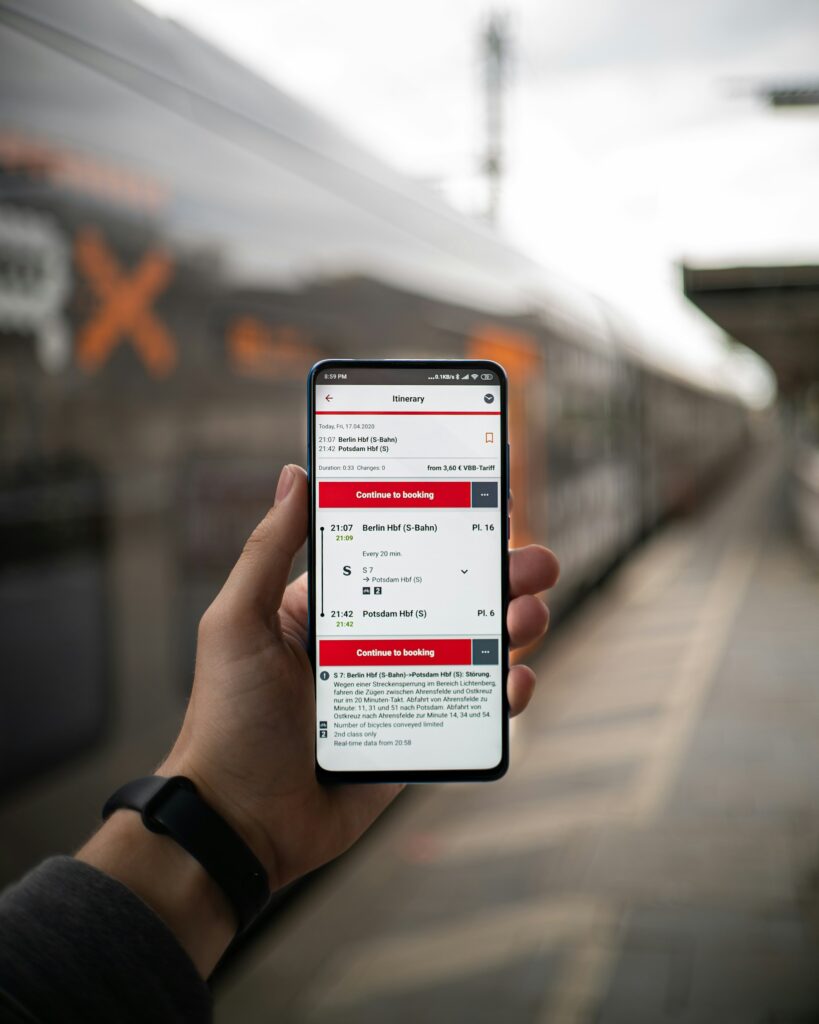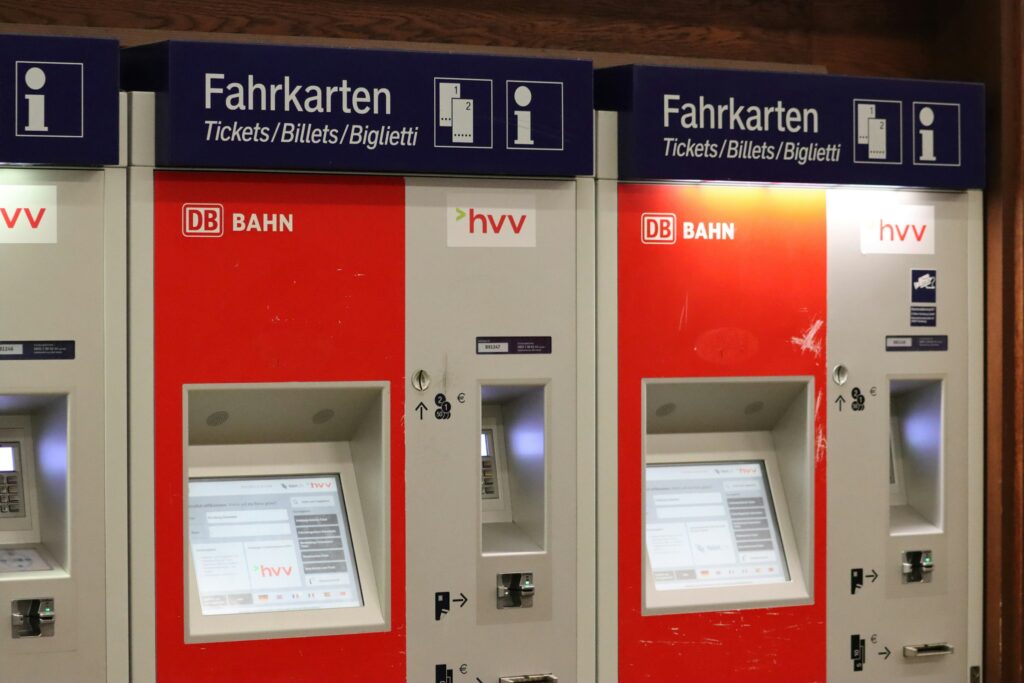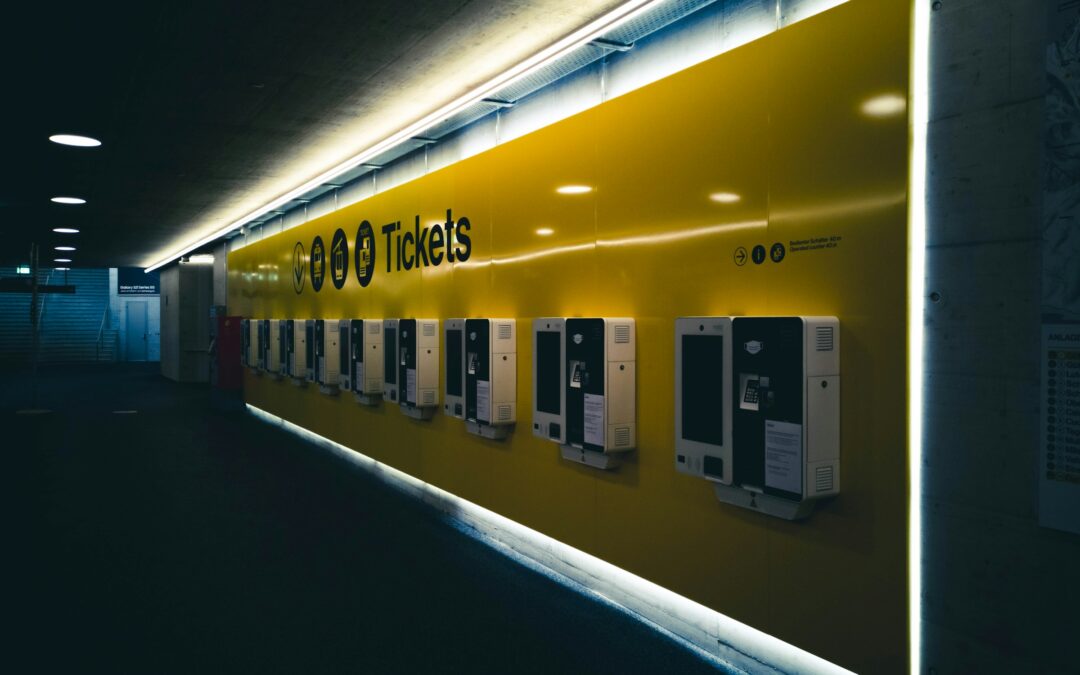Deutsche Bahn is being criticized for its discount tickets. Data protectionists criticize the practice of data collection and the possible exclusion of certain customer groups. The Economy tickets Data protection Criticism is primarily directed against the mandatory provision of an e-mail or cell phone number when purchasing tickets.
According to Deutsche Bahn, over 90% of long-distance tickets are purchased digitally. However, a survey by the Federation of German Consumer Organizations shows that Almost half of those surveyed feel restricted by purely digital ticket purchases. Hessian State Data Protection Commissioner Alexander Roßnagel criticizes the fact that people without a smartphone or the internet are denied access to cheap tickets.
Deutsche Bahn defends its digitalization strategy. It argues that the contact details are necessary for travel information. Critics see this as a violation of the principle of data economy. The debate raises questions about Data collection Privacy and to the Consumer protection Transparency on.
Important findings
- 90% of long-distance tickets are purchased digitally
- 43% feel restricted by purely digital ticket purchases
- Economy tickets available from 17.99 euros
- Mandatory information from E-mail or cell phone number for online purchases
- Criticism of possible exclusion of customers without digital devices
Introduction: The controversy surrounding Deutsche Bahn economy tickets
Deutsche Bahn is at the center of a heated debate about its saver price tickets. The sticking point: when purchasing these tickets, customers have to provide their e-mail address or mobile phone number - whether online or at the ticket counter. This practice raises questions about the Online bookings tracking and possible Misuse of customer data on.
Critics see this as unnecessary data collection and discrimination against certain customer groups. Older people or people without internet access in particular could be excluded from buying cheaper tickets as a result.
Deutsche Bahn defends its approach. It argues that the data is needed for important customer information in the event of changes or delays. In fact, four out of five customers already book their tickets digitally via bahn.de or the DB Navigator app.
Digital tickets provide better information in the event of travel changes.
Despite the digitalization strategy, "saver and flex prices" remain available in travel centers and DB agencies. The controversy shows the challenge of combining digital progress with customer friendliness while maintaining data protection.
| Ticket type | Availability | Format |
|---|---|---|
| Savings and flex prices | Travel centers, DB agencies | Digital and paper |
| Super saver price seniors | Travel centers (from October 1) | Digital only |
| Germany ticket | Online | Digital only |
Sparpreisistickets data protection criticism: key points of the debate
Deutsche Bahn's discount tickets are at the center of a heated data protection debate. Critics see this as a possible violation of the GDPR compliance. The main points of criticism cover several aspects relating to both data protection and accessibility.
Unnecessary data request when purchasing tickets
A central point of criticism is the forced collection of e-mail addresses or cell phone numbers when purchasing discount tickets. Data protectionists argue that this practice violates the principle of data minimization. Deutsche Bahn collects more data than necessary, which raises questions about the GDPR compliance raises.
Exclusion of customers without a smartphone or Internet access
Deutsche Bahn's digitalization strategy leads to another problem: millions of customers without digital devices are excluded from buying the cheap tickets. This raises questions about Conflict of interest regulation as the railroads, as a public company, should be accessible to all citizens.
Data protection concerns
The data protectionists argue that it would also be possible to individualize tickets using other methods that are less intrusive to customers' privacy. The current practice could violate data protection regulations and requires close scrutiny with regard to the GDPR compliance.
| Point of criticism | Problem | Possible solution |
|---|---|---|
| Data query | Violation of data minimization | Minimization of the required data |
| Digital exclusion | Unequal access to saver fares | Alternative booking options |
| Data protection concerns | Possible GDPR violation | Review and adaptation of practice |
The data protectionists' position: Alexander Roßnagel's arguments
Alexander Roßnagel, Chairman of the Conference of Independent Data Protection Supervisory Authorities, sharply criticizes Deutsche Bahn's digitalization strategy. He emphasizes the importance of consumer protection and transparency in the digital age.
Roßnagel argues that Deutsche Bahn's data collection practices show little consideration for privacy-conscious or less tech-savvy people. He emphasizes that data protectionists are not opponents of digitalization, but are opposed to unnecessary pressure to disclose data. personal data defend themselves.
We oppose the unnecessary compulsion to disclose data. The railroads have a special responsibility to the common good.
The data protection officer criticizes the fact that an unnecessarily large amount of personal data is requested when purchasing discount tickets. He argues that it would be possible to individualize tickets without the forced collection of email addresses or smartphone numbers. This would better protect customers' privacy.
Roßnagel emphasizes Deutsche Bahn's responsibility to the common good due to its quasi-monopoly in German rail transport. He calls for more consideration for customers without a smartphone or internet access, who are excluded from discounted travel by the current practice.
Railroad digitization strategy: progress or regression?
Deutsche Bahn relies heavily on digitalization. Over 90% of customers use online bookings. This brings advantages, but also raises questions.
Advantages of digital ticket booking
Digital tickets make traveling easier. In the event of changes to the timetable, information is communicated quickly and easily. The Online bookings tracking enables better planning of the trip.
- Flexible booking options
- Quick adjustment in the event of faults
- Simplified reimbursement processes

Disadvantages for certain customer groups
Digitalization excludes millions of people. Older people or people without a smartphone have a harder time. The Cheap flights safety raises questions.
| Advantages | Disadvantages |
|---|---|
| Fast booking | Exclusion of certain groups |
| Flexibility | Data protection concerns |
| Real-time updates | Technical hurdles |
The importance of digital systems was demonstrated during the GDL strike. DB was able to run 20% long-distance trains despite restrictions. The information systems were constantly updated to show available trains.
Digitalization should make travel easier, but it must not become an end in itself.
The railroads must find a middle way: Use digital advantages without excluding customers. Only in this way can the digitalization strategy be a real step forward.
Deutsche Bahn's responsibility for the common good
As a quasi-monopolist in German rail transport, Deutsche Bahn faces a particular challenge: it must Consumer protection Transparency and at the same time drive forward its digitalization strategy. This balancing act leads to tensions between modernization and social responsibility.
Critics see the current practice as socially explosive. It makes it more difficult to buy cheap economy and supersaver tickets, which particularly affects low-income groups. Statistics show that more than 90 percent of customers use the online offers. Conversely, this means that millions of people are excluded.
Deutsche Bahn emphasizes that it will not leave anyone alone on the path to digitalization. It provides comprehensive training for advisors in travel centers and telephone customer service. Nevertheless, the question of Conflict of interest regulation exist. How can a company of national importance master the balancing act between progress and inclusion?
We must ensure that all sections of the population have access to affordable tickets. This is part of our responsibility to the common good.
This statement from a railroad spokesperson underlines the complexity of the situation. Deutsche Bahn must find a way to reconcile digitalization, data protection and social responsibility. This is the only way it can fulfill its role as a service provider for all citizens.
Online purchase vs. over-the-counter sales: differences and problems
Deutsche Bahn is increasingly relying on digital sales channels for its tickets. This leads to considerable differences between online purchases and counter sales, which not only bring advantages but also problems.
Data collection for online purchases
When purchasing train tickets online, customers must provide their name as well as their cell phone number or e-mail address. Deutsche Bahn argues that this data is necessary for customer information in the event of changes. However, critics see this as a Online bookings tracking and warn of possible Misuse of customer data.
"The forced collection of email addresses or smartphone numbers is not permitted under data protection law," says a data protection expert.
Restrictions on over-the-counter sales
Over-the-counter sales are being increasingly restricted. Certain tickets, especially low-cost economy and super saver tickets, are only available at ticket machines or ticket counters to a limited extent. This causes problems for customers without a smartphone or internet access.

| Sales channel | Advantages | Disadvantages |
|---|---|---|
| Online purchase | Convenient, fast, access to all offers | Data submission required, exclusion of non-digital customers |
| Counter sales | Personal consultation, no internet use necessary | Limited offer, often longer waiting times |
This development raises questions about Deutsche Bahn's responsibility for the common good. While over 90% of customers use the online services, millions of people are excluded from buying cheap tickets. Deutsche Bahn must find a balance between digitalization and accessibility for all customer groups.
Deutsche Bahn's response to the criticism
Deutsche Bahn rejects the accusations of data collection. A Deutsche Bahn spokeswoman emphasizes that the data collected is only used for the transmission of tickets and travel information. This should Consumer protection Transparency guarantee.
Deutsche Bahn points out that over 90 percent of its customers use online services. Nevertheless, millions of people remain excluded from these digital opportunities. Deutsche Bahn assures that it will not leave anyone alone on the path to digitalization.
To ensure GDPR compliance, Bahn:
- Contact details are for ticket transfer and travel information only
- Digital railcards are also available offline in the DB Navigator
- Flextariffs without train connection remain available as paper tickets
Deutsche Bahn is planning to replace the plastic card with a digital one next year. Consumer advocates criticize this measure. Federal Consumer Minister Steffi Lemke is calling for all offers to be made accessible to customers without a smartphone.
The company emphasizes the need to provide comprehensive training for employees to facilitate the transition to digitalization. Deutsche Bahn faces the challenge of aligning its digitalization strategy with the needs of all customer groups.
Data protection assessment of ticket sales practice
Deutsche Bahn is being criticized for its new ticket sales practice. Since October 1, saver and super saver tickets have only been issued digitally. This raises questions about GDPR compliance and data collection.
GDPR compliance
Deutsche Bahn requires personal data such as e-mail addresses or cell phone numbers when booking economy tickets. Data protectionists are critical of this. They argue that this practice violates the principle of data minimization. The GDPR stipulates that only necessary data should be collected. Deutsche Bahn justifies its approach with the need to inform customers about changes.
Principle of data minimization
Experts emphasize that the railroads do not collect the least amount of data possible. Instead, it collects information that is of interest to it. This could violate data protection regulations. Critics argue that it would be possible to individualize tickets even without personal data.
The debate about data collection and privacy at Deutsche Bahn shows the challenges of digitalization. It remains to be seen how Deutsche Bahn will respond to the criticism and whether adjustments will be made to improve GDPR compliance.
